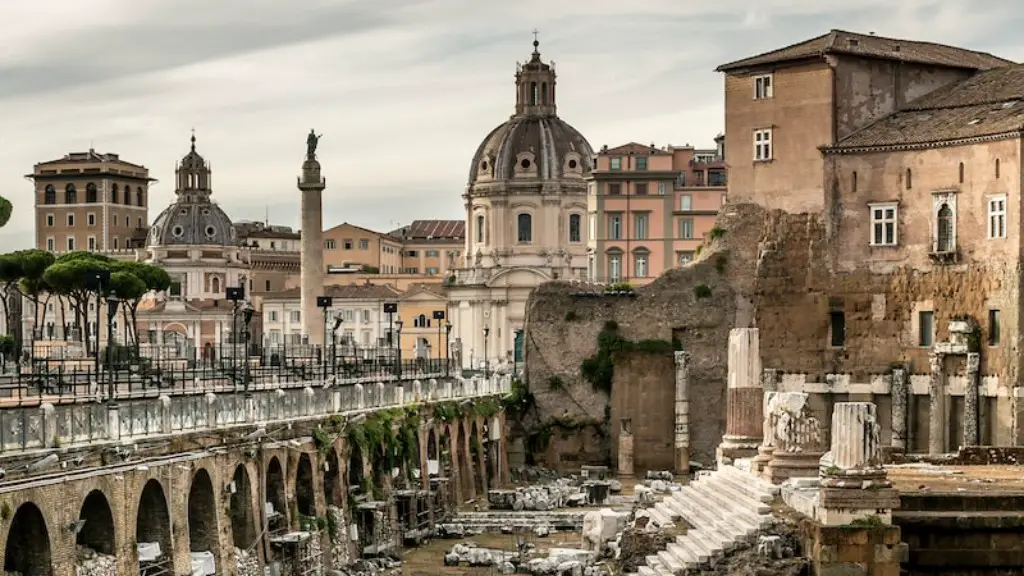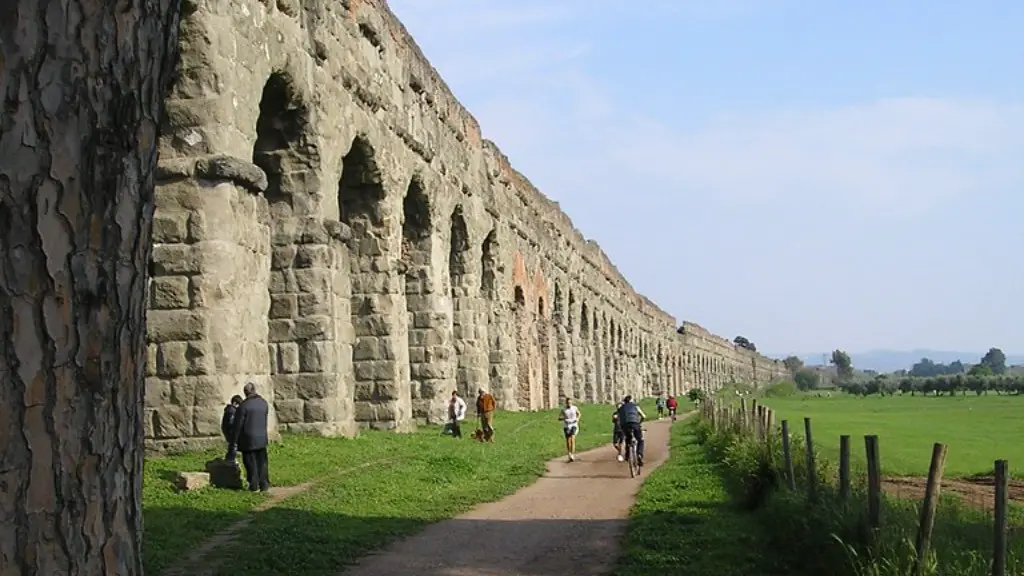Being a slave in Ancient Rome was a harsh life. Slavery was an accepted part of Roman society, with millions of people being owned by wealthy Romans as property. Slaves performed all sorts of jobs, from manual labour and domestic tasks to highly skilled roles such as doctors and teachers. A slave’s fate depended largely on the temperament of their master; some were lucky to live in relative comfort and security, while many faced abuse, long hours and dangerous conditions.
In Ancient Rome, slaves were legally owned by the state and their masters had absolute power over them. They were treated as objects or commodities, and were denied basic human rights; they had no control over their lives, no choice in their work, and could be bought and sold like any other piece of property. Slaves typically worked in labour-intensive jobs in the fields, mines, workshops and households, toiling for long hours with little food or shelter. They faced harsh punishments for any infractions; whipping and branding were not uncommon, and sometimes even death.
In addition to the harsh physical conditions that slaves endured, they lived in an atmosphere of fear and anxiety, with no guarantee of security or safety. In some cases, they were captured in war and were treated worse than any other group. Others were born into slavery and had little or no hope of ever being freed. Overall, the life of a slave was one of extreme deprivation, with little to no chance of escaping their fate.
Despite the hardships, slavery in Ancient Rome served a purpose, as it provided the backbone for the empire’s economy. Slaves were valuable assets for the wealthy, and were used to generate profits through farming, mining, manufacturing, and trade. Slaves also provided cheap labour for large-scale building projects and offered their masters the opportunity to reap huge profits.
There were also some instances of compassion towards slaves; some were well treated by their masters and could even earn wages and own property. Slaves were also sometimes freed and given their own homes, although this was an unusual occurrence.
Social implications of slavery in Ancient Rome
The impact of slavery on Ancient Roman society was immense. Slavery was a major factor in the rise of Rome and its vast empire, allowing it to expand and grow with unprecedented speed. However, the same forces that enabled Rome’s success also created a system of oppression, leading to institutionalised discrimination, extreme poverty and social unrest.
Slavery not only deprived individuals of their freedom, it divided families and communities. Slaves were not allowed to marry, and owned children were taken from their families and sold, creating a legacy of separation and suffering that affected generations of people.
The legacy of slavery also ingrained oppressive attitudes in Roman society; the belief that some people were somehow ‘inferior’ to others became deeply entrenched in the culture. This, combined with the immense economic power of slave owners, helped to maintain an unequal and unjust social system that remained in place for centuries.
The role of religion
Roman religion played a major role in the country’s long and complex history of slavery. Many gods and goddesses were associated with slavery; Apollo, the sun god, was revered as the protector of slaves, while Dionysus was believed to possess the power to free them. Religion also served to legitimise and support the institution of slavery; the idea that some people were ‘meant’ to be slaves was a recurrent theme in religious texts and teachings.
However, the power of religion was also used to challenge and resist the practices of slavery. Groups such as the Christian Church were particularly outspoken in their condemnation of the institution, and worked to raise awareness of the injustice at the heart of Roman society.
Impact of slavery on the Roman economy
The institution of slavery had a huge impact on the Roman economy; slave labour was used to drive the country’s economy, providing cheap and abundant labour and allowing the wealthy to become even wealthier. Slave-worked plantations and farms made large-scale crop production and expansion possible, while the use of slave labour in mines and workshops helped to drive the country’s industry.
At the same time, the costs associated with slavery had a negative economic impact; the costs of capturing and maintaining slaves reduced the profits of slave-worked farms and businesses, and the impact of slave revolts and rebellions had a detrimental effect on the economy.
The prevalence of slavery in Roman society created a rigid class system, with the wealthy and powerful at the top and the slaves at the bottom. This division had a hugely damaging effect on Roman society, with those at the top benefitting from the exploitation of those below them. Even after the legal recognition of freedmen, the effects of slavery remained, creating a caste system that created a gulf between the rich and poor.
The link between slavery and wealth in Roman society persisted long after the end of the empire, creating an environment of inequality and class resentment that fuelled social unrest.
The legacy of slavery in Ancient Rome
The legacy of slavery in Ancient Rome remains to this day, with its effects still being felt in many parts of the world. Its influence can be seen in racism and discrimination, in social inequality and the persistence of poverty. It is also an important reminder of the need for greater recognition of human rights and the need for more equitable systems of wealth and power.
Despite the violence and oppression that was inherent in the institution of slavery, it is important to remember that there were also glimpses of hope and compassion; slaves were sometimes freed and given the opportunity to live their lives with dignity. This is a powerful reminder of our shared humanity and the need for greater respect and compassion in our societies.



